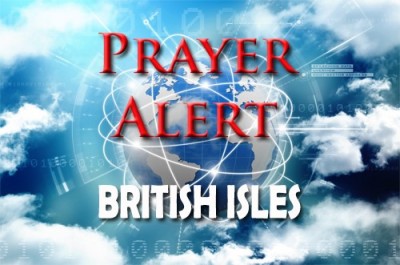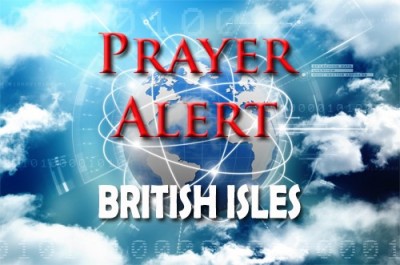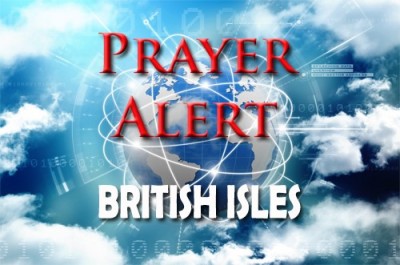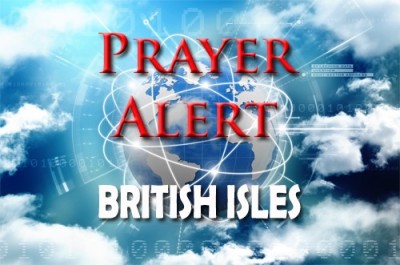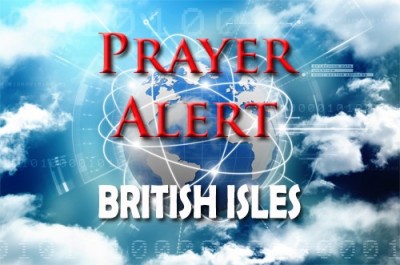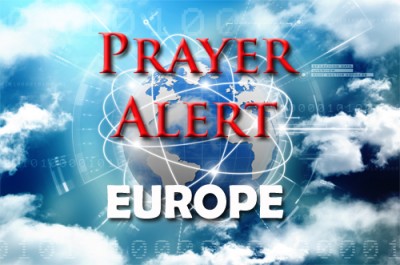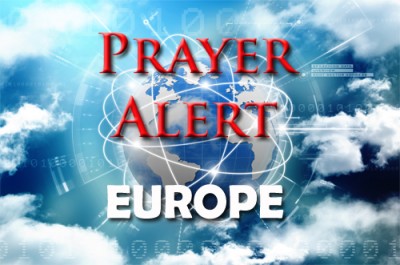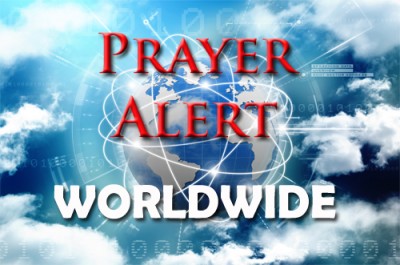Christians called to offer sanctuary to refugees
02 Jul 2021Christians and others are being encouraged to welcome a refugee or asylum-seeker into their homes as part of a new initiative. The Hospitality Pledge was launched this week and will work with international charities and the church to speak up for the displaced. It's being led by Dr Krish Kandiah with the aim of encouraging people to offer sanctuary to those who are persecuted or fleeing conflict as offering sanctuary is at the heart of the Gospel. ‘Christians are called to show mercy and compassion to those that are in need. Jesus once said, I was a stranger, and you welcomed me. In welcoming, to the least of those in our society is a demonstration of the love and compassion of Jesus. Right now our nation has an interesting relationship with asylum and welcoming refugees.’ Dr Kandiah assured enquirers that there will be a lot of support available for anyone who decides to accommodate a refugee or asylum-seeker.
Disabled people forgotten during Covid
02 Jul 2021Over 3,300 people took part in BBC research into the impact of the pandemic on the lives of disabled people. Most said their disability had worsened and over 2,400 said routine, often vital, medical appointments had been cancelled. Disability charity Scope said the findings confirmed that disabled people's needs ‘had been forgotten’. There were young autistic people who had attempted suicide because they could no longer cope with drastic changes; others were isolated and alone, their support networks gone or hours of care cut. A family told how care had been almost stopped for their disabled daughter, while her father, who had had Covid, was offered a range of treatments. Her cochlear implant needs retuning regularly but has not been checked for two years. Her physiotherapy has not continued, and her walking frame no longer fits. Her last eye test was over the phone.
Royal reunion
02 Jul 2021The Dukes of Cambridge and Sussex met on 1 July to unveil a statue of their mother, Princess Diana, on what would have been her 60th birthday. It was William and Harry's first appearance together since the Duke of Edinburgh's funeral in April. The statue, commissioned by the brothers in 2017, will stand in Kensington Palace's redesigned Sunken Garden. At the time, they said they hoped it would help visitors to the palace ‘reflect on her life and her legacy’. Also the royal princes have reportedly bonded over England's Euros victory over Germany by exchanging texts and speaking before their reunion.
Tech giants being investigated
02 Jul 2021Amazon and Google are under UK competition watchdog scrutiny regarding fake reviews on their platforms. The competition regulator is probing the tech giants in relation to breaches of consumer protection law. Their ‘specific concerns’ were raised about whether the two companies were ‘doing enough’ to detect ‘fake and misleading reviews or suspicious patterns of behaviour.’ An initial sweep, begun in May 2020, cast doubts on whether the firms investigate and remove such reviews, and if they impose ‘adequate sanctions’ to deter reviewers or businesses from violating rules on honest posts - in particular by taking action against repeat offenders. ‘Our worry is that millions of online shoppers could be misled by reading fake reviews and then spending their money based on those recommendations’, said the watchdog. Last September, Amazon had to delete 20,000 product reviews, written by seven of its top UK reviewers, following a Financial Times investigation discovering reviewers were paid to post thousands of five-star ratings.
Why can’t amateur singers sing together?
02 Jul 2021Theresa Villiers MP asked Sajid Javid, ‘Now that thousands of people are allowed to gather together at a football match to shout and cheer as much as they want, is it not time that we allowed congregations in church to sing hymns together?’ The new health secretary replied, ‘I can tell you that that is certainly what I would like to see; it is my intention to allow that to happen as soon as possible. When it does, I hope we can sing a hymn together.’ During the debate, one exasperated comment was, ‘As a member of the parliament choir, I want to meet with other members in a socially respectable way to sing the music that inspires us and to lead our lives as close to normality as we can. What we want is a road map and a timescale.’
Germany: economic recovery
02 Jul 2021Coronavirus restrictions are easing, and Germany’s economy is picking up as traders and service providers benefit, but industry suffers delivery problems. Global lockdowns have lowered production levels and interrupted supply chains. Essential raw materials, chemicals and component parts are in short supply and prices are skyrocketing. There are disruptions in container shipping, traffic congestion in ports and a shortage of containers, where three consortia control over 80% of the world market and dictate prices. For various reasons, the highest inflation since 2008 is on the horizon. In addition to the CO2 tax, world market prices for grain, which have risen 30%, are already raising the cost of living. Germany is an exporting country, dependent on international value-added trade-chains. There is now changed thinking concerning regional supply chains within the EU: now, instead of ‘just in time delivery’, storing becomes important.
Europe: policing borders amid Covid-19 rise
02 Jul 2021With the rise of the Covid Delta variant, Europe is divided on how to police its borders. Paris and Berlin are concerned about the influx of British tourists to southern Europe and are calling for a coordinated effort as the variant continues its inexorable advance across the continent. Its rise is rekindling tensions over the management of the EU's external borders. These divisions were much discussed at the beginning of the pandemic and resurfaced at the European summit in Brussels last week. Some want to err on the side of prudence; others such as Spain, Portugal and Greece are anxious to protect their all-important tourist seasons. There is no blanket health policy covering Europe, but there are health policies that need to be coordinated between the 27 member states.
Czech Republic, USA, UK: uncommon tornadoes
02 Jul 2021On 25 June five people were killed and hundreds injured as a tornado wreaked havoc in the Czech Republic, with tennis-ball-sized hailstones hitting several villages in South Moravia. In the village of Luzice 120 houses were destroyed or damaged, roofs ripped off, windows blown out, cars overturned and debris scattered through the streets. Eight people were hospitalised after a tornado hit Chicago suburbs and damaged over 130 homes. In England a tornado that hit Barking left the area looking as if a bomb had gone off. Houses were seriously damaged, walls knocked down, and cars destroyed. Flash flooding caused trees and debris to be blown around the streets. There were also flash floods in Somerset.
